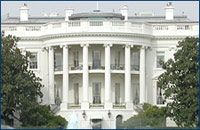Kennedy ERISA Participants to Brief Plan Document Issue for Supreme Court
 This is not wholly unpredictable, but the Supreme Court in the ERISA case of Kennedy v. DuPont Savings Plan told the parties to brief an issue that pretty much dominated oral argument.
This is not wholly unpredictable, but the Supreme Court in the ERISA case of Kennedy v. DuPont Savings Plan told the parties to brief an issue that pretty much dominated oral argument.
The Supreme Court on Tuesday ordered lawyers to file new briefs by Nov. 10 on a new issue in a pending case testing a divorced spouse’s right to the other spouse’s pension benefits. The question was posed in Kennedy v. DuPont Savings Plan Administrator (07-636) — a case heard by the Justices on Oct. 7. The new question tests the application to the case of a part of federal benefit law that requires benefit plan administrators to operate the plan as dictated by plan documents — an issue that the Court appeared previously to have declined to hear . . . .


